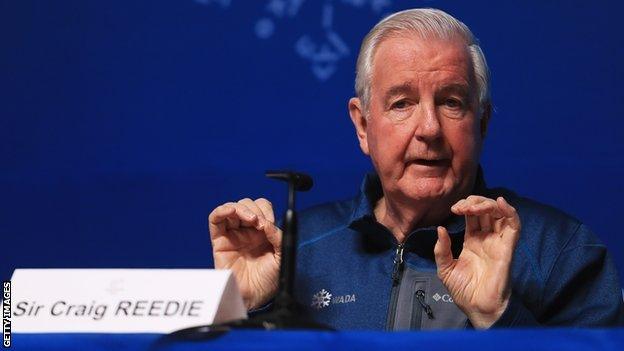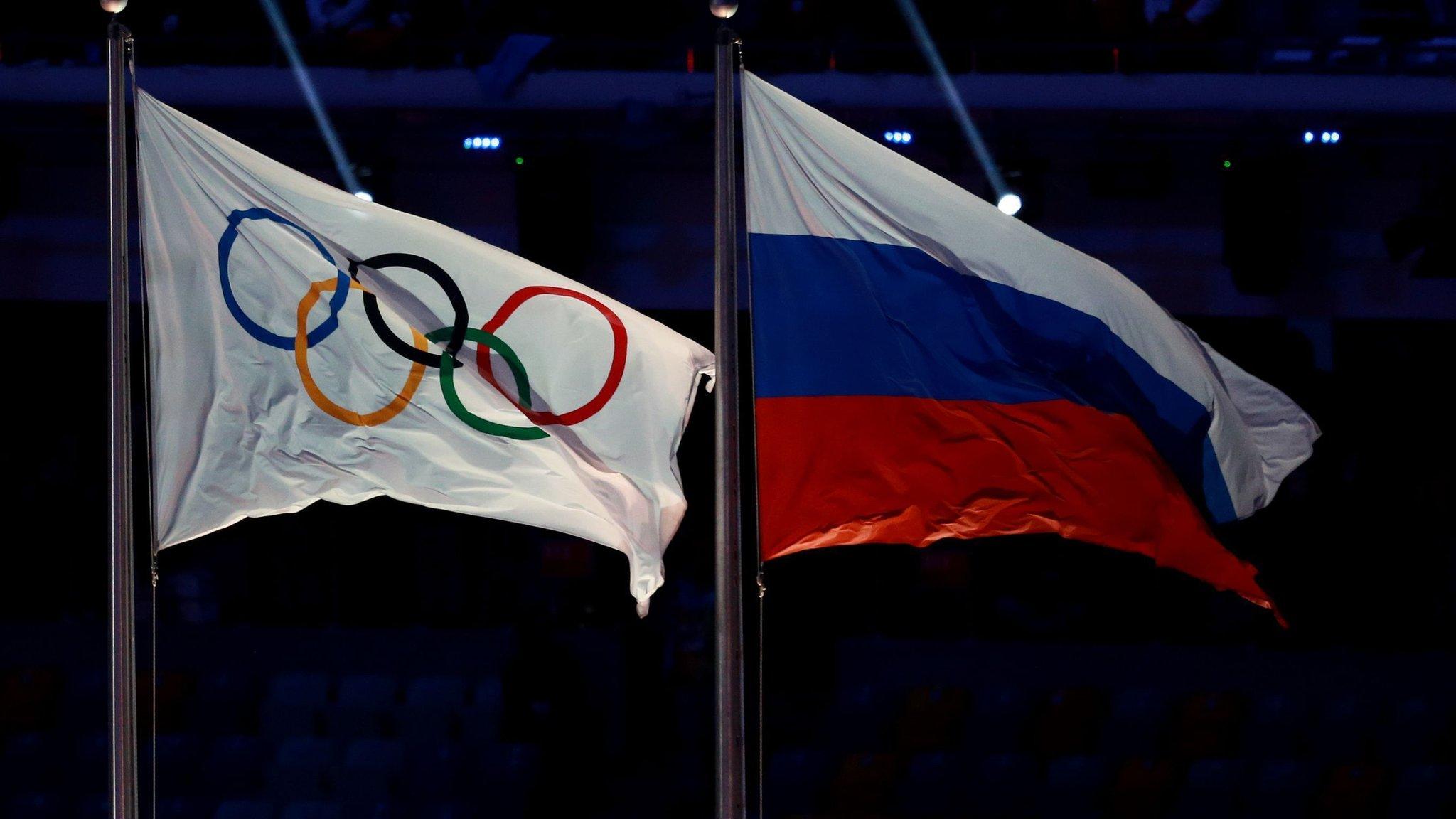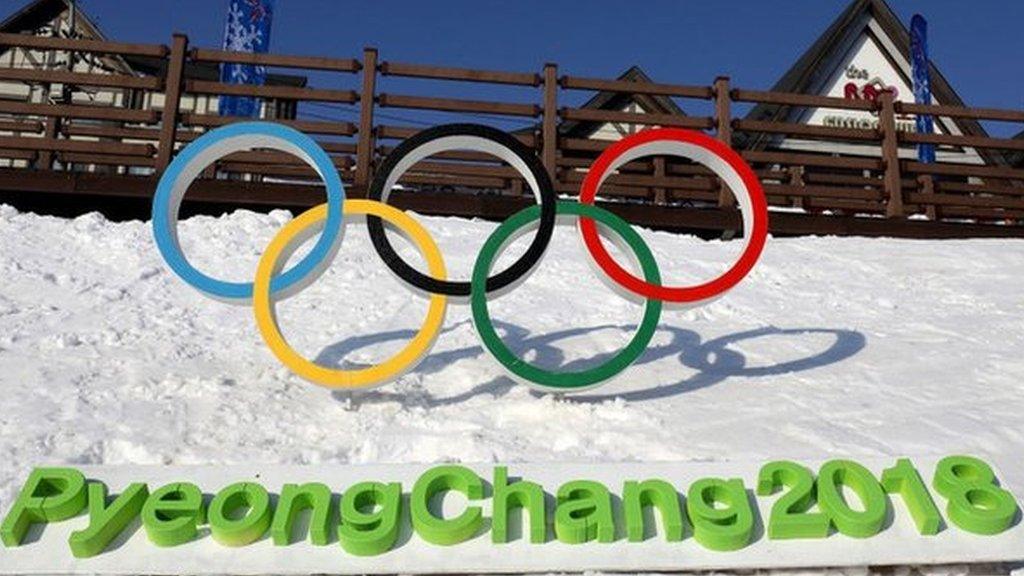Doping in sport: Russian participation at major events still in doubt - Sir Craig Reedie
- Published

Sir Craig Reedie was elected as Wada's third president in January 2014
Russian athletes' involvement at major events is in doubt until authorities admit cheating, says the president of the World Anti-Doping Agency (Wada).
The Russian Anti-Doping Agency (Rusada), currently suspended by Wada, is yet to accept proof of state-sponsored doping.
Wada is also unable to access hundreds of athletes' samples stored in a Moscow laboratory central to the scandal.
"The big losers here are Russian athletes," said Sir Craig Reedie.
"We have been trying to persuade them to recognise and accept as true the systemic doping as revealed by the investigations led by Professor Richard McLaren and Samuel Schmid, which was the basis of the recent International Olympic Committee decision on Russia's neutral status at the Winter Olympics."
The McLaren report concluded 1,000 athletes across 30 sports benefitted from the doping programme between 2012 and 2015.
Athletes who could prove they were clean were allowed to compete in Pyeongchang under a neutral flag.
While Rusada - suspended in November 2015 - has now met all the other requirements on Wada's road map for reinstatement, Reedie said there has been no progress on the final two points.
"We made an offer to senior Russian officials in Pyeongchang to visit the Moscow laboratory together but it seems our offer has fallen on deaf ears," he said.
"We have also written to the Russian Investigatory Committee four times to offer our help and we have not had a single response.
"Their participation in future events will continue to be put in doubt and the rest of the world will not be convinced any meaningful change has taken place."
But RUSADA's new director general Yury Ganus said acknowledgement of state-sponsored doping "doesn't depend on us".
"It's a difficult question and we're not responsible for this question," he added.
"We're doing our best, but it's a question for state officials and it's a question of negotiation."
Speaking at Wada's 14th annual conference in Lausanne, Reedie's address followed comments from the Russian sports minister Pavel Kolobkov to the TASS news agency,, external suggesting that the country's "sports remains hostage" to McLaren's findings.
Kolobkov cited the Court of Arbitration for Sport (Cas) overturning the Olympic life bans of 28 Russian athletes which had been based on McLaren's conclusion that 1,000 athletes across 30 sports benefitted from the doping programme between 2012 and 2015.
Cas said that in 28 cases evidence was "insufficient" to prove doping - a decision IOC chief Thomas Bach called "extremely disappointing and surprising".
"When 28 of our athletes were cleared, the decision was made by an independent court, it was a meaningful judicial process involving witnesses, our athletes, experts and testimonies provided by McLaren and [whistleblower Grigory] Rodchenkov," said Kolobkov.
"The decision speaks for itself, they have been cleared by professional judges.
"If they demand that we recognise the McLaren report, it means there is no evidence and demands are taking the place of real evidence."
- Published28 February 2018

- Published5 December 2017
